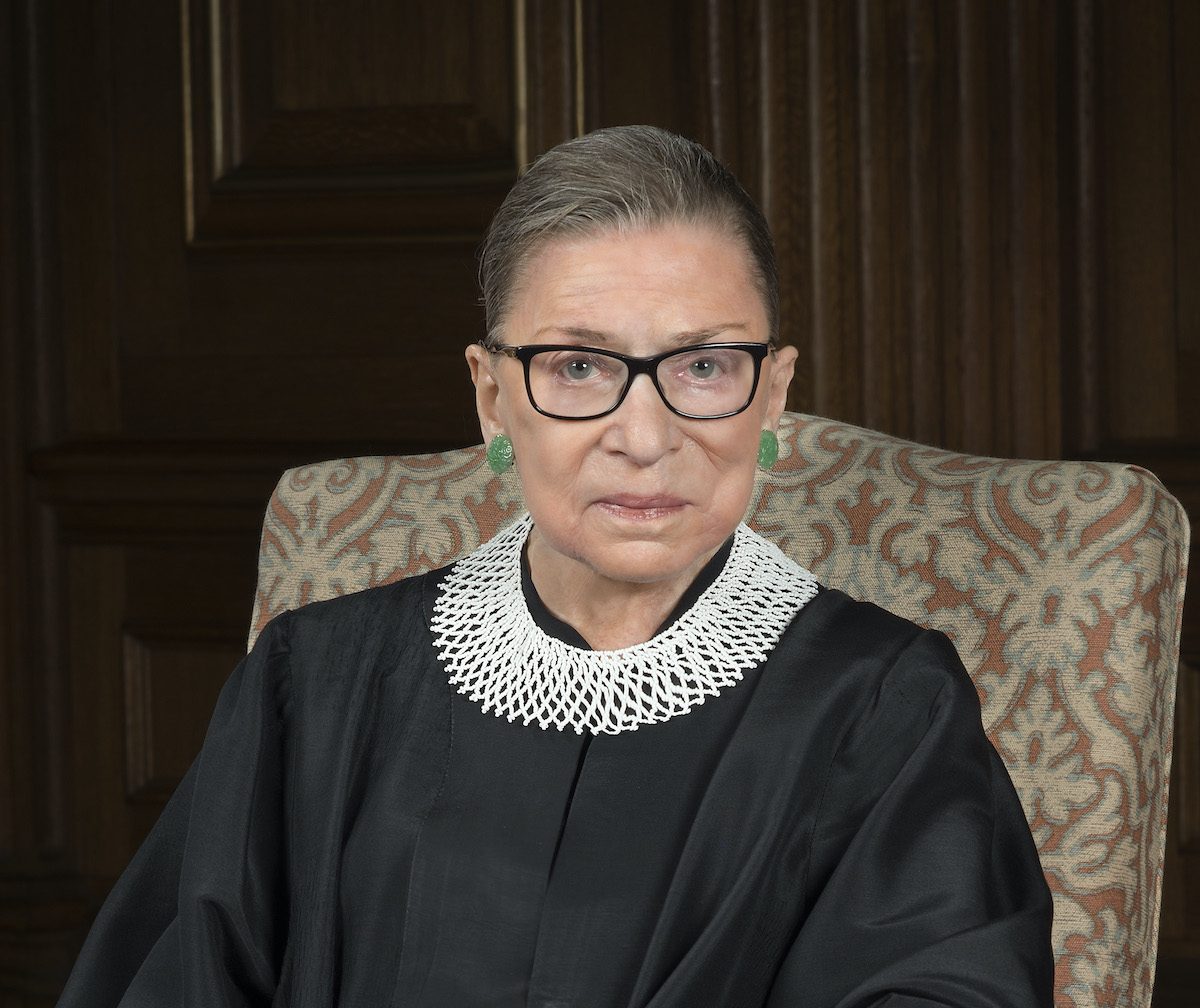Just last month, the legal profession lost one of its biggest stars, Supreme Court Justice Ruth Bader Ginsburg.
Justice Ginsburg, the second woman ever appointed to the Supreme Court, spent much of her career advocating for women’s rights and gender equality.
From her pop-culture celebrity status (as The Notorious RBG) to her pioneering to support of LGBTQ rights, immigration rights, and access to healthcare, Ginsburg is a legal trailblazer who has weighed in on some of the most influential cases of the last three decades and played a significant role in the landscape US law.
Here are six landmark cases, described in Ginsburg’s own words.
United States v. Virginia
In 1996, Virginia Military Academy was the last remaining all-male public undergraduate institution in the United States. Ginsburg objected to the notion that any meaningful distinction exists between men and women exists to justify the gender-exclusive admissions policy, writing, “Generalizations about ‘the way women are,’ estimates of what is appropriate for most women, no longer justify denying opportunity to women whose talent and capacity place them outside the average description.”
Hobby Lobby v. Burwell
Ginsburg was famed for being as powerful in dissent as when writing for the majority.
In 2015, the Supreme Court sided with Hobby Lobby in a suit challenging the company’s refusal—citing religious belief—to grant employees access to contraception under their employer-provided healthcare plan.
Ginsburg’s 35 page dissent included lines like” The distinction between a community made up of believers in the same religion and one embracing persons of diverse beliefs, clear as it is, constantly escapes the Court’s attention. One can only wonder why the Court shuts this key difference from sight”—or, more succinctly put—“Your right to swing your arms ends just where the other man’s nose begins.”
Ledbetter v. Goodyear Tire & Rubber Company
In 2007, Lily Ledbetter sued her employer of 19 years for discrimination after learning that the company had been paying her male colleagues more than it paid her. The court sided with Goodyear, who argued that according to the provisions of the 1964 Civil Rights Act, Ledbetter would have been required to file a complaint within 180 days of any violation—even though she didn’t become aware of the violation for 19 more years.
Ginsburg read her dissent from the bench, a rare practice indicating her strong opposition to the court’s decisions. She wrote, “In our view, the court does not comprehend, or is indifferent to, the insidious way in which women can be victims of pay discrimination.”
Shelby County v. Holder
This 2013 decision eliminated preclearance, a provision in the Voting Rights Act that prevented states from making changes to their voting requirements without federal approval.
Always adept with figurative language, Justice Ginsberg wrote in her dissent that “Throwing out preclearance when it has worked and is continuing to work to stop discriminatory changes is like throwing away your umbrella in a rainstorm because you are not getting wet.”
Olmstead v. LC
In 1999, two women brought suit under the Americans with Disabilities act after they were held in isolation in the psychiatric ward of state-run Georgia hospital for over two years despite receiving medical approval for discharge. The court voted in favor of the women, and Ginsburg wrote a majority opinion supporting the rights of people with disabilities to live in integrated communities. She said that the isolation of the plaintiffs “perpetuates assumptions that persons so isolated are incapable or unworthy of participating in community life.”
Whole Women’s Health vs. Hellerstedt
In 2016, a house bill requiring abortion providers to have admitting privileges at a nearby hospital threatened to make reproductive healthcare difficult to access for women in rural communities.
The bill failed by a 5-3 vote, and Ginsburg argued that the restriction of constitutionally protected rights to the extent that they become inaccessible is itself an unconstitutional practice, saying, “When a State severely limits access to safe and legal procedures, women in desperate circumstances may resort to unlicensed rogue practitioners. […] Targeted Regulation of Abortion Providers laws like H.B. 2 that do little or nothing for health, but rather strew impediments to abortion, cannot survive judicial inspection.”
As a public figure, Justice Ginsburg inspired multiple generations of men and women—to enter the law, to speak their minds, and to trust their own judgment of their abilities over the objections of those who might (for whatever reason) not recognize their potential.
She is remembered not only for her brilliance, but for her strength of character—and for the grit that kept her penning fiery dissents (and pumping iron with the best of them) into her late eighties.
“When I’m sometimes asked when will there be enough [women on the Supreme Court] and I say, ‘When there are nine,’ people are shocked. But there’d been nine men, and nobody’s ever raised a question about that.” -Justice Ruth Bader Ginsburg
Thank you Justice Ginsburg, for your leadership, your determination, and for the example you set.
#whentherearenine
-Shann M. Chaudhry, Esq.





0 Comments